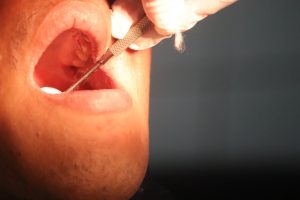Featured Products
- In-Stock Tumor Cell Lines
- Human Orbital Fibroblasts
- Human Microglia
- Human Pulmonary Alveolar Epithelial Cells
- Human Colonic Fibroblasts
- Human Type II Alveolar Epithelial Cells
- Human Valvular Interstitial Cells
- Human Thyroid Epithelial Cells
- C57BL/6 Mouse Dermal Fibroblasts
- Human Alveolar Macrophages
- Human Dermal Fibroblasts, Adult
- Human Lung Fibroblasts, Adult
- Human Retinal Muller Cells
- Human Articular Chondrocytes
- Human Retinal Pigment Epithelial Cells
- Human Pancreatic Islets of Langerhans Cells
- Human Kidney Podocyte Cells
- Human Renal Proximal Tubule Cells
Primary Cells
Explore Products



 SKN-3 is a human oral squamous cell carcinoma (OSCC) cell line established via xenotransplantation in mice, derived from a patient with OSCC. This cell line exhibits epithelial-like morphology and adherent growth properties in culture. Genomic profiling identifies a recurrent 2.5-Mb amplification at 19q13.12-13.2, forming homogeneously staining regions and containing 66 transcripts, including the oncogene PAK4, which is markedly overexpressed and drives proliferation through kinase-dependent pathways. SKN-3 demonstrates tumorigenic and metastatic potential in preclinical models, mirroring the aggressive behavior of OSCC .
SKN-3 is a human oral squamous cell carcinoma (OSCC) cell line established via xenotransplantation in mice, derived from a patient with OSCC. This cell line exhibits epithelial-like morphology and adherent growth properties in culture. Genomic profiling identifies a recurrent 2.5-Mb amplification at 19q13.12-13.2, forming homogeneously staining regions and containing 66 transcripts, including the oncogene PAK4, which is markedly overexpressed and drives proliferation through kinase-dependent pathways. SKN-3 demonstrates tumorigenic and metastatic potential in preclinical models, mirroring the aggressive behavior of OSCC .